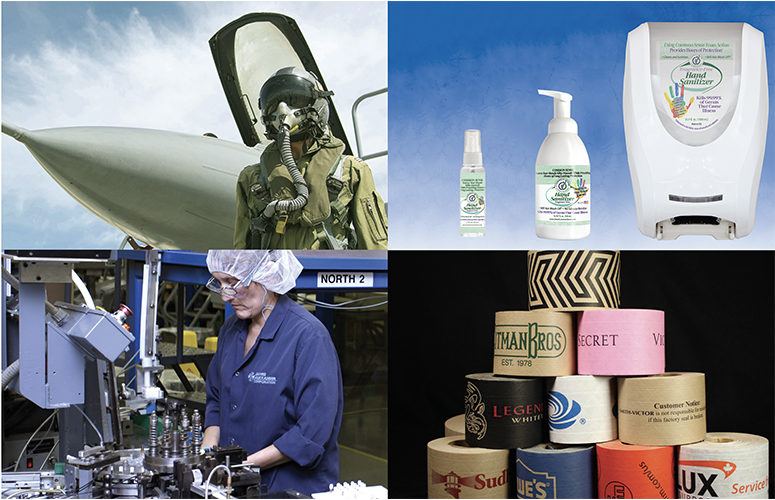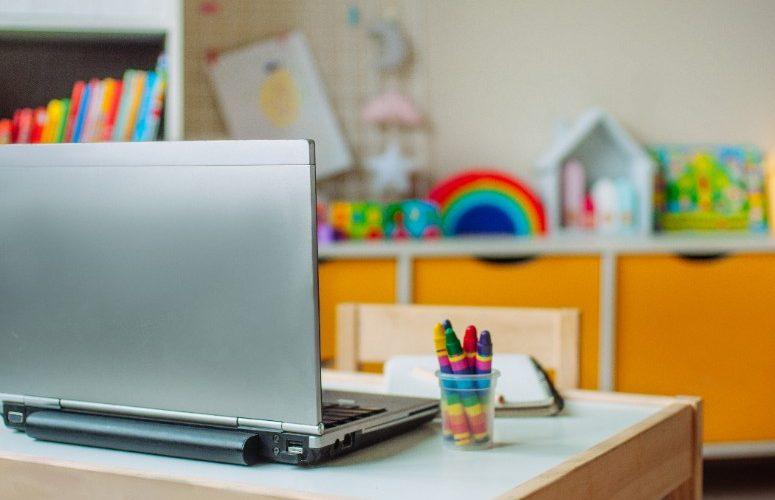
Manufacturers Reinvent Themselves
During the COVID-19 pandemic, some manufacturers realize opportunities.
By Ron Marsico, Contributing Writer On Oct 12, 2020New Jersey’s manufacturers and their quarter-million employees are enduring a difficult 2020, with the COVID-19 pandemic taking a toll on the industry’s strong recovery since the Great Recession. That rebound led to $52.7 million in manufacturing output in 2018, accounting for nearly 8.5% of total state output and an average compensation of $95,611.
Chemical manufacturing remains tops statewide by a wide margin, followed by food, beverage and tobacco products, and then computers and electronics. In 2019, the top manufacturing sectors for job growth included pharmaceuticals, medical equipment and supplies, cleaning materials, and aerospace products and parts.
New Jersey’s urban, suburban and rural manufacturers are striving to meet the challenges and even some opportunities of operating in a time of social distancing. They include:
Switlik
Based in Trenton, Switlik is celebrating its 100th anniversary. The company was founded in 1920 as a canvas and leather goods business by Stanley Switlik, a Polish immigrant. By the 1930s, the firm was designing flight clothing and manufacturing parachutes, supplying the likes of famed aviator Amelia Earhart.
During World War II and the Cold War, Switlik supplied the military with parachutes, life vests, and inflatable life rafts. Since the 1960s, the company has made inflatable and floatable safety products for commercial aviation and maritime use, while diversifying its military products to “anti-G’’ (gravity) suits and anti-exposure suits.
Sarah Switlik, a fourth-generation family member and vice president of sales and marketing, recalls her great-grandfather’s mantra for pivoting: “He always said: ‘The machines don’t care what they’re making, as long as there’s stuff running through them.’”
Switlik says, “So, we’ve been pretty versatile over our 100 years, with a general focus in the safety and survival equipment business.”
The company’s military work means an essential business designation during the pandemic. With its commercial aviation business currently taking a hit, the company turns excess supplies into a line of reusable facemasks, which are donated and sold to hospitals, dental offices, schools, restaurants and individuals.
“It’s a clear shield that wraps around your full face. It’s got a headband,’’ says Switlik, noting the 130- to 150-employee company initially donated coverings to New York City and Mercer County hospitals during the pandemic’s darkest days.
Switlik adds, “It’s been a nice supplement for us as well to make sure we’re able to maintain employment, keep the line alive, and keep the jobs here for when our other business comes back.’’
James Alexander Corporation
Located near Blairstown in rural Warren County, James Alexander Corp. makes, fills and seals packaging – known as ampoules – for pharmaceutical, prescription drugs, cosmetics and other liquid products. These tamper-resistant glass ampoules help extend liquids’ shelf life, while the plastic ampoules provide convenient, single-use doses.
“Our packaging specialty is filling and sealing both the glass and plastic ampoules,’’ says Dave Robinson, president of James Alexander, which has about 150 full-time employees.
The privately owned company was founded in 1976 by Francesca Fazzolari and Alexander Davidson, and deemed essential now with its pharmaceutical business. That designation helps make James Alexander’s suppliers essential as well.
“We haven’t missed a day,’’ says Robinson, noting that acquiring chemicals early for the company to make its own hand sanitizer proved key. “It’s scrambling obviously for raw materials, making sure that all of our suppliers were viable. It was a real challenge, particularly early on, to keep things going.’’
James Alexander is supplying more reagents for client use directly in COVID-19 test kits, as well as testing the fitting and functioning of facemasks.
“Some of our product lines in the pharmaceutical arena are down a little bit,” Robinson explains. “That’s simply because, in a lot of cases, routine medical procedures aren’t being carried out right now.”
Microbe Solutions LLC/Common Sense
Formed in 2017 by its president, Kathy Lenox, Microbe Solutions LLC in Ocean County’s Bayville has found a niche market for its Common Sense-brand hand sanitizer during the pandemic.
Lenox and Michael Hammer, the company’s vice president, are working together to expand business for their hand sanitizer and also the firm’s residential and commercial sanitizing services.
Sales have spiked significantly during the pandemic for their three-year-old marquee product, dubbed “Common Sense Long Lasting Alcohol Based Hand Sanitizer.’’
“You’ll be shocked – you can use it all day long,” says Hammer, crediting “unique formula’’ properties. “It leaves your hands after the very first use, (with) a silky smooth feeling that is difficult to put into words.”
Common Sense products are “green,’’ says the company website, noting the sanitizers function “without the use of poisons or metals’’ and “does not create microbial resistant strains.’’
A major issue is finding plastic bottles for its lotion with supplies from China drying up, leading the company to find domestic containers, Hammer says.
Looking ahead, Hammer says Microbe Solutions wants to broaden its retail market with additional personal care products and continue tending to its residential and commercial sanitizing operations.
Holland Manufacturing
Located in suburban Morris County, Holland Manufacturing retains its headquarters in the Succasunna facility Jack W. Holland opened in 1958 to produce reinforced, water-activated sealing tape for packaging. Today, it is a third-generation, family-run business with the late founder’s son, Jack A. Holland, as chairman and CEO, and grandson, Blair Holland, as president and COO.
Holland is an essential supply chain business. Along with water-activated tape, its products include industrial packaging wrap, custom printed labels and tags, as well as job site surface protection and construction barrier materials.
The pandemic is a “supercharger” for ecommerce, says Blair Holland, with water-activated tape a major product for sealing boxes.
“A lot of our market is driven by ecommerce, which has seen a surge,’’ says Holland, whose company has 150 employees plus outside sales representatives. “People that never bought online all of a sudden were forced to.’’
Water-activated tape sales also benefit from accelerating trends for printed logos and words, which deliver branding along with packaging security.
“Of course, Amazon was there earlier. Over the last three years, the rest of these ecommerce companies have recognized that the package is now their storefront,’’ says Holland. “Making that package look as appealing and recognizable and memorable to their consumer … that’s their game now because it’s coming in a brown box.”
Conclusion
Throughout the current pandemic, manufacturers have been considered essential businesses and have been allowed to stay open under social distancing guidelines. Many, as the examples show in this article, have slightly changed production. Perhaps every manufacturer should give careful thought to the statement made by Stanley Switlik mentioned earlier in this story: “The machines don’t care what they’re making, as long as there’s stuff running through them.”
To access more business news, visit NJB News Now.
Related Articles:





